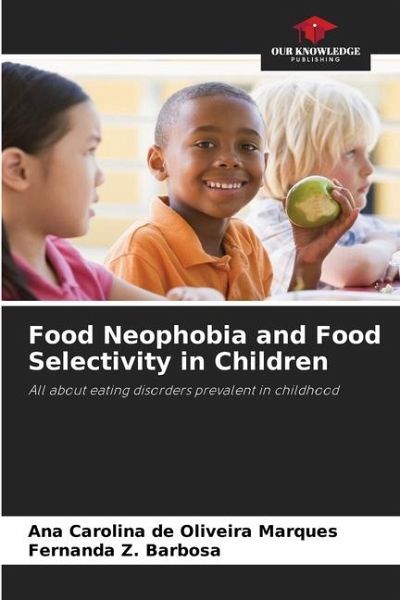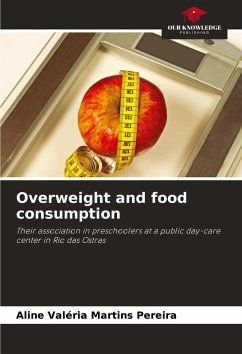
Food Neophobia and Food Selectivity in Children
All about eating disorders prevalent in childhood
Versandkostenfrei!
Versandfertig in 6-10 Tagen
24,99 €
inkl. MwSt.

PAYBACK Punkte
12 °P sammeln!
Complementary feeding should begin at 6 months of age. It is recommended that feeding be introduced gradually. It is very common for babies to reject new foods, but this should not be interpreted as a permanent aversion. One of the most important things when a child is restricted from trying new foods is not to label or make judgments. Children need to eat out of hunger and appetite, not to please their parents or out of blackmail or in exchange for some reward. Food is not a bargaining chip! The path of introducing food is complex and challenging, but if we think that a child who becomes awar...
Complementary feeding should begin at 6 months of age. It is recommended that feeding be introduced gradually. It is very common for babies to reject new foods, but this should not be interpreted as a permanent aversion. One of the most important things when a child is restricted from trying new foods is not to label or make judgments. Children need to eat out of hunger and appetite, not to please their parents or out of blackmail or in exchange for some reward. Food is not a bargaining chip! The path of introducing food is complex and challenging, but if we think that a child who becomes aware of food has a lifetime to enjoy the benefits it can bring, it's worth investing and dedicating yourself to this path. Remember that parents are the key players in this stage. Family influence is crucial in the development of Food Neophobia and Food Selectivity in Children.














